Search engine optimization is the backbone of online visibility. In 2025, businesses, bloggers, and entrepreneurs in New York and beyond need SEO more than ever to stand out amidst growing competition. SEO drives organic traffic, builds credibility, and helps establish your authority in your niche.
How Google’s Evolving Algorithms Impact Beginners
Google’s algorithms are becoming smarter, focusing on user intent, content relevance, and technical efficiency. While this may sound daunting, beginners can use these advancements to their advantage by learning to optimize for core ranking factors.
Chapter 1: Understanding the Basics of SEO
What Is SEO?
SEO is the process of optimizing your website to improve its visibility on search engines like Google. It includes on-page, off-page, and technical SEO techniques to attract and retain your target audience.
Key Components of SEO
On-Page SEO: Includes optimizing keywords, meta tags, headings, and content.
Off-Page SEO: Involves building backlinks, social media marketing, and reputation management.
Technical SEO: Focuses on website speed, mobile-friendliness, and structured data.
Chapter 2: Keyword Research – The Foundation of SEO Success
Finding the Right Keywords for Beginners
Keyword research is crucial for ranking on Google. Here’s how to do it:
Use tools like Google Keyword Planner, Ahrefs, or SEMRush.
Focus on long-tail keywords like “easy SEO tips for beginners in 2025.”
Incorporate geo-specific keywords like “SEO strategies for beginners in New York.”
Competitor Analysis
Identify top-ranking websites in your niche and analyze their keyword strategies. Use tools like Ubersuggest to uncover opportunities and fill content gaps.
LSI Keywords and NLP Terms
Incorporate latent semantic indexing (LSI) keywords such as “organic traffic growth” and “SEO for small businesses.” NLP terms like “search engine algorithms” and “content optimization” will align your content with Google’s preferences.
Chapter 3: Crafting High-Quality Content That Ranks
Writing for Your Audience
Your content should address your target audience’s needs. Beginners often benefit from step-by-step tutorials, how-to guides, and actionable tips.
The Role of Content-Length
In 2025, long-form content (2000+ words) tends to rank better. This doesn’t mean adding fluff—focus on delivering value. Break down complex topics into digestible sections.
Using Subheadings Effectively
Subheadings make your content scannable and improve readability. Use keywords in your subheadings but avoid keyword stuffing.
Transition Words and Active Voice
Transition Words: Ensure your content flows smoothly with phrases like “in addition,” “however,” and “therefore.”
Active Voice: Write direct, engaging sentences to keep readers interested.
Chapter 4: Optimizing On-Page SEO for Beginners
Meta Tags
Write compelling meta titles and descriptions:
Meta Title: Use your primary keyword, e.g., “How Beginners Can Rank on Google with SEO in 2025 | LeadLeads.”
Meta Description: Provide a concise summary of your content with keywords.
Heading Structure
Organize your content with proper H1, H2, and H3 tags. For instance:
H1:How Beginners Can Rank on Google with SEO in 2025
H2: Keyword Research – The Foundation of SEO Success
H3: Finding the Right Keywords for Beginners
Image Optimization
Add alt text to your images using keywords. For example, an image of an SEO dashboard could have the alt text: “SEO tools for beginners in 2025.”
Chapter 5: Building Authority with Off-Page SEO
The Power of Backlinks
Backlinks from reputable websites signal authority to Google. Beginners can start by:
Writing guest posts on relevant blogs.
Listing their website on local New York directories.
Networking with local businesses for cross-promotion.
Social Media Integration
Promote your content on platforms like Instagram, Twitter, and LinkedIn. Engage with your audience to drive traffic and improve brand recognition.
Chapter 6: Technical SEO Essentials for 2025
Mobile Optimization
Ensure your website is mobile-friendly, as Google prioritizes mobile-first indexing. Use tools like Google’s Mobile-Friendly Test to check.
Site Speed
Slow-loading websites hurt your rankings. Optimize images, enable caching, and use a content delivery network (CDN).
Structured Data
Use schema markup to help Google understand your content. For beginners, plugins like Yoast SEO simplify the process.
Chapter 7: Local SEO Tips for Beginners in New York
Optimizing for Local Search
Claim your Google My Business listing.
Add your location in title tags, meta descriptions, and content.
Creating Location-Specific Content
Publish blogs like “Top SEO Agencies for Beginners in New York” or “How SEO Helps New York Small Businesses Grow.”
Chapter 8: Measuring and Improving Your SEO Performance
Analytics Tools
Use Google Analytics and Google Search Console to monitor your traffic, bounce rate, and rankings.
Continuous Improvement
SEO is an ongoing process. Regularly update your content, monitor trends, and adapt to algorithm changes.
FAQs For How Beginners Can Rank on Google with SEO in 2025
Q. What is SEO, and why is it important in 2025?
A. SEO, or Search Engine Optimization, is the process of optimizing your website to improve its visibility on search engines like Google. It remains important in 2025 because it helps businesses attract organic traffic, build credibility, and compete effectively in the digital space.
Q. How can beginners find the right keywords for SEO?
A. Beginners can use tools like Google Keyword Planner, Ahrefs, and SEMRush to find relevant keywords. Focus on long-tail keywords and geo-specific terms, such as “SEO tips for beginners in New York.”
Q. What are LSI keywords, and why should I use them?
A. LSI (Latent Semantic Indexing) keywords are related terms that help search engines understand the context of your content. Using them makes your content more comprehensive and aligned with Google’s algorithms.
Q. How does Google prioritize content in its rankings?
A. Google prioritizes content that is relevant, user-focused, and technically optimized. Factors like keyword usage, content quality, backlinks, mobile-friendliness, and site speed play significant roles in rankings.
Q. What role does content length play in SEO?
A. Long-form content, typically over 2000 words, performs well in search rankings because it offers comprehensive value to readers. However, the focus should always be on delivering useful and engaging information.
Q. How can beginners build backlinks to improve their SEO?
A. Beginners can start by:
Writing guest posts for relevant blogs.
Listing their website on local directories.
Networking with businesses for cross-promotion.
Sharing content on social media to attract natural backlinks.
Q. What is technical SEO, and why does it matter?
A. Technical SEO involves optimizing your website’s backend to ensure it functions efficiently. This includes improving site speed, mobile responsiveness, and implementing structured data to help search engines better understand your content.
Q. How can I optimize my website for local SEO in New York?
A. Claim and optimize your Google My Business profile.
Include location-specific keywords in your content.
Create content tailored to your local audience, such as blogs addressing New York-specific SEO needs.
Q. What tools can beginners use to measure SEO performance?
A. Tools like Google Analytics, Google Search Console, and Yoast SEO can help beginners track website traffic, monitor bounce rates, and measure keyword rankings to refine their strategies.
Q. How often should I update my SEO strategy?
A. SEO is an ongoing process. Regularly update your content, analyze performance metrics, and adapt to algorithm changes or new trends to maintain and improve your rankings.
Final Thoughts On How Beginners Can Rank on Google with SEO in 2025
SEO in 2025 might seem complex, but beginners can achieve great results by following the strategies outlined in this guide. Whether you’re in New York or elsewhere, success lies in understanding your audience, creating valuable content, and optimizing your website for both search engines and users.



